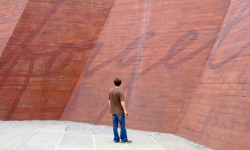
We’re aware that the church in Aotearoa New Zealand has been in decline for a number of years, but is that the whole story? Steve Davis says there are big gaps in this generalisation and many voices have yet to be heard. He suggests ways churches can position themselves for greater mission impact in our culturally diverse country.
How different might the picture of faith in New Zealand look if some of the currently excluded voices were incorporated?
Here’s what I mean:
- Up to 30% of Māori and Pasifika populations were not included in the 2018 census data.1 These are cultures that are known to be more focused on the spiritual in their worldview than Pākehā. How would their inclusion change the picture?
- Likewise, migrant and diaspora cultures are also under‑represented in such data collections. Even we, as the Baptist Union family, have a difficult time getting church reports from many of our migrant/diaspora churches. If all that information was included, what would that look like?
- Looking at the low polling results of the local government elections in October (for example, Ōtahuhu and Ōtara in Auckland) has also indicated many voices are not participating in society at large.2
The world at our place
Globalisation has caused the world to come to our shores, as a desirable destination country in which to live. A quarter of New Zealand’s population are foreign born and more than 160 languages are spoken in our country. In our largest city, Auckland, 39% of the population were born overseas—a percentage that only two other cities in the world can top.3 There are also more than 210 people groups in Auckland, higher than New York or London!
Auckland Council’s population growth projections for 2038 is that 35% of the city may be Asian.4 We know that the Chinese people group has been the most open to the gospel in the last 20 to 30 years. It has also been projected that Auckland will become 48% Pākehā, with other cultures making up the 52%. What will the city look like in that scenario? What would a denomination look like in that new context, especially considering that many immigrants identify as Christian.
Mission impact
If Revelation 7:9 paints a picture of the cultural diversity of God’s redeemed people, why are most churches monocultural?
Many Baptist churches are already engaging the cultural diversity of our country as a primary calling for mission. But if a church is yet to make that step, how can it transition and go down this pathway? How does it create the relationships, find resources, and join with other companions to explore the different pathways that such a journey can take it on? What are some of the basic steps or key phases that a faith community can take in positioning themselves for this task?
From my own ministry experience, these are my suggestions:
- As a faith community, intentionally seek God’s vision for your community, and be open to all the preparatory work that the Spirit needs to do in your leaders and the wider community for such a journey. Intentionally pray for connections with ‘people of peace’ in your community—entry points into the different cultures in your location. Pray also for recruits who are good at building bridges (returning missionaries or those who have worked overseas?), and for cultural ambassadors to emerge and join you in that venture.
- Build everyone’s capacity in cultural intelligence. Seek to gain wisdom and confidence (both by workshops and personal experience) in meeting people different from yourselves. Seek to learn culture in a relational way—not just as a cognitive and cerebral exercise through reading, but through face-to-face engagement. It’s good to get ‘lost in the fog of cultural misunderstanding’ because then perhaps you will see your own cultural biases in a new light! This helps us to unlearn our own worldview, and get a taste and appreciation of other worldviews.
- Engage and get to know all that you can about your community or the people group towards whom the Holy Spirit is directing you. Community door-to-door surveys are especially valuable, as teams can reflect together on what the community is saying to them in terms of local needs and issues. City councils also have information that can help, plus real estate agents, schools, other pastors in the community, etc.
- Go on the bicultural journey. The Treaty of Waitangi is part of our past and our present; it is a vital part of the land in which we live. Learn the stories of your local region. Meet and ask the local iwi for their welcome and blessing on your journey. Watch for that side benefit of seeing how that opens doors for other cultures to be open to your approaches and makes space for them to have a sense of belonging to your revitalised faith community. The best expression of the multicultural journey here in Aotearoa New Zealand goes through the bicultural gate.
- Cultivate a culturally diverse leadership team. You will need each other in this diversity to both interpret and navigate where God is leading you on your journey, and to model how to share life and faith together across cultures. This process will enable you to experience the inner transformational change that is necessary for such a journey, and give you an idea of what others will go through as they journey with your faith community. Leadership especially will have to monitor the stress levels that this process naturally causes, and have the skills to work through the messy stuff that will arise.
Story: Steve Davis
Steve is the national team leader for Baptist Multicultural Inclusion Ministries. He and his wife Lyn have spent 38 years in ministry in three continents, and have been doing cross‑cultural ministry for the last 25 years. Their last two church plants in the past decade, Macau and Auckland, have also been intentionally culturally diverse.
References:
- www.temanararaunga.maori.nz/nga-panui.
- www.aucklandcouncil.govt.nz/elections/Pages/results-turnout.aspx.
- http://archive.stats.govt.nz/Census/2013-census/profile-and-summary-reports/quickstats-culture-identity/birthplace.aspx.
- www.aucklandcouncil.govt.nz/plans-projects-policies-reports-bylaws/our-plans-strategies/auckland-plan/about-the-auckland-plan/Pages/aucklands-asian-population.aspx.
Training opportunity
The Carey Centre for Lifelong Learning guided learning course Leading Multicultural Faith Communities is specifically designed to coach and equip leaders to engage positively in transitioning their faith communities towards being more culturally diverse.
Contact either Steve Davis or Lindsay Jones (Northern Baptist Association’s Multicultural Ministries coach) for more info on this course, which will be offered in 2020.
Email Steve
Email Lindsay


